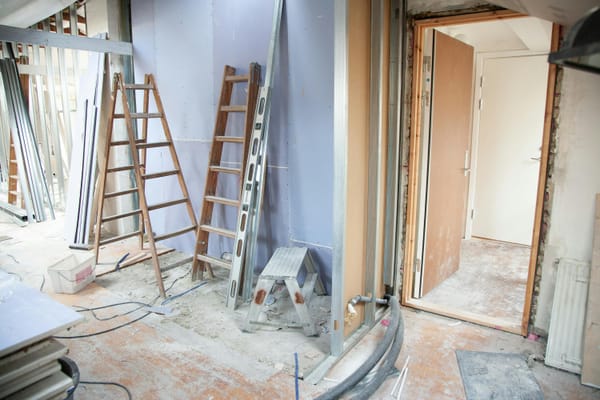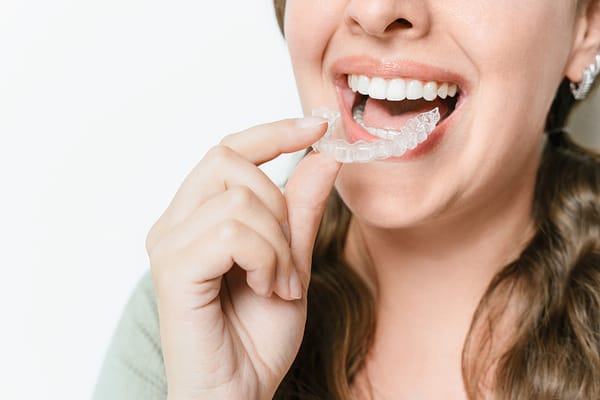Hardwood vs. Laminate vs. Luxury Vinyl: Which Flooring Is Right for You?

Introduction
Flooring is one of the most impactful investments a homeowner or small business owner can make. It defines the style of a room, affects comfort and acoustics, and must stand up to daily wear. But with so many materials on the market, choosing the right one can feel overwhelming. Among the most popular — and frequently compared — options are hardwood, laminate, and luxury vinyl flooring (LVP/LVT).
Each offers its own blend of beauty, durability, cost-efficiency, and maintenance requirements. But which is right for your home or business? In this article, we’ll explore the pros and cons of each material, compare their performance in various spaces, and help you make an informed decision based on your needs, lifestyle, and budget.
What Makes These Three Options So Popular?
- Hardwood offers timeless beauty and prestige, with natural grain and warmth.
- Laminate mimics hardwood at a more affordable price, with decent durability.
- Luxury vinyl plank/tile combines realism with waterproof performance and resilience.
Together, these three dominate today’s flooring market — each for good reason. Let’s break them down.
1. Hardwood Flooring
Overview:
Hardwood flooring is crafted from solid planks of natural wood, such as oak, maple, hickory, or walnut. It's known for its elegance, long-term value, and ability to be sanded and refinished multiple times.
Pros:
- Natural aesthetic: Rich, authentic wood grain and character.
- Longevity: Can last 50+ years with proper care.
- Refinishable: Surface can be sanded and restained multiple times.
- Increased home value: Considered a premium feature in real estate.
Cons:
- Higher cost: Material and installation can be expensive.
- Susceptible to moisture: Not ideal for bathrooms or basements.
- Prone to scratches and dents: Especially in high-traffic or pet-friendly homes.
- Maintenance-intensive: Requires regular cleaning and climate control.
Best For:
- Living rooms, dining rooms, bedrooms
- Upscale homes and showrooms
- Commercial environments with low moisture and foot traffic (e.g., boutique offices)
Maintenance:
- Use wood-safe cleaners; avoid excess water
- Refinish every 7–15 years depending on wear
2. Laminate Flooring
Overview:
Laminate flooring is a composite material made from high-density fiberboard topped with a photographic layer that mimics wood, stone, or tile, and finished with a protective wear layer.
Pros:
- Affordable: Offers hardwood look for a fraction of the cost.
- Scratch-resistant: Durable surface handles pets and kids well.
- DIY-friendly: Click-lock systems simplify installation.
- Variety: Wide range of colors and patterns.
Cons:
- Moisture-sensitive: Standard laminate can swell or warp if exposed to water.
- Not refinishable: Once damaged, planks must be replaced.
- Less authentic feel: Doesn’t match the warmth or depth of real wood.
Best For:
- Living rooms, bedrooms, and home offices
- Budget-conscious remodels
- Light-traffic commercial settings (with upgraded commercial-grade laminate)
Maintenance:
- Sweep or vacuum regularly
- Wipe spills quickly; avoid wet mopping
- Use felt pads to prevent scratching
3. Luxury Vinyl Flooring (LVP/LVT)
Overview:
Luxury vinyl flooring comes in planks (LVP) or tiles (LVT) that replicate the appearance of wood or stone. Made of several synthetic layers, including a waterproof core, it’s designed for extreme durability.
Pros:
- 100% waterproof: Perfect for kitchens, bathrooms, and basements.
- Durable and flexible: Handles foot traffic, drops, and temperature changes.
- Low maintenance: Easy to clean and resists scratches and stains.
- Comfort underfoot: Softer than tile or hardwood; some options include cushioning.
Cons:
- Can fade in direct sunlight
- Not refinishable: Like laminate, damaged sections must be replaced.
- Perception: Some homeowners may still view vinyl as “less luxurious”
Best For:
- Kitchens, bathrooms, laundry rooms, basements
- High-traffic residential areas
- Retail stores, medical offices, restaurants
Maintenance:
- Sweep and damp mop regularly
- No need for waxing or polishing
- Use doormats and furniture pads to extend life
Cost Comparison
| Flooring Type | Material Cost (per sq. ft.) | Installed Cost (per sq. ft.) | Lifespan |
|---|---|---|---|
| Hardwood | $6 – $15 | $10 – $20+ | 30–100 years |
| Laminate | $1 – $4 | $2 – $8 | 10–20 years |
| Luxury Vinyl | $2 – $5 | $4 – $10 | 15–30 years |
Note: Labor costs vary by region, and commercial-grade materials often cost more.
Environmental Considerations
- Hardwood is natural and biodegradable but contributes to deforestation unless sourced sustainably.
- Laminate contains resins and glues, which may emit VOCs unless labeled low-emission.
- Luxury vinyl is petroleum-based and harder to recycle, but it often contains recycled content and uses less natural resource extraction.
Look for FloorScore® or GREENGUARD® certifications if indoor air quality is a concern.
Installation Differences
- Hardwood usually requires professional installation, acclimation to the room's humidity, and precise nailing or gluing.
- Laminate often comes with click-lock floating systems that are ideal for DIY.
- Luxury vinyl may float or be glued down depending on brand and product line. It also works well over concrete or imperfect subfloors.
Appearance and Design Versatility
- Hardwood provides unmatched authenticity but is limited by natural color tones.
- Laminate and LVP can replicate exotic woods, rare stone, or creative patterns — some indistinguishable from the real thing.
- Modern vinyl offers embossed-in-register (EIR) textures that align with visual grain, adding to realism.
Working with a provider like Murison’s Flooring America ensures you see product samples in-person — which is essential, as flooring can look very different under various lighting conditions.
Which Flooring Should You Choose?
Choose Hardwood if:
- You’re looking for timeless beauty and long-term investment
- You plan to stay in your home long-term
- Your space is low-moisture and you don’t mind periodic refinishing
Choose Laminate if:
- You want an affordable hardwood look
- You need scratch resistance for pets or kids
- You’re tackling a DIY project with budget constraints
Choose Luxury Vinyl if:
- You need waterproof flooring for kitchens, baths, or basements
- You want maximum durability with minimal upkeep
- You value a wide range of textures and patterns
Final Thoughts
The decision between hardwood, laminate, and luxury vinyl flooring comes down to your priorities: appearance, durability, cost, moisture resistance, and long-term maintenance.
While hardwood remains a gold standard for elegance and resale value, laminate and luxury vinyl offer compelling advantages — especially in high-traffic, moisture-prone, or budget-conscious environments. Small business owners may lean toward vinyl for its easy upkeep and resilience, while homeowners might find a hybrid approach — vinyl in utility spaces, hardwood in living areas — to be the ideal solution.
To make the best choice for your unique space, consult with trusted flooring experts like Murison’s Flooring America, who can guide you through product samples, performance comparisons, and professional installation options tailored to your home or business.



